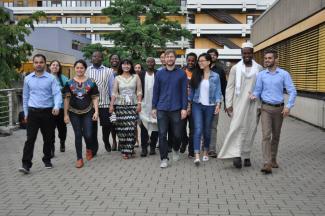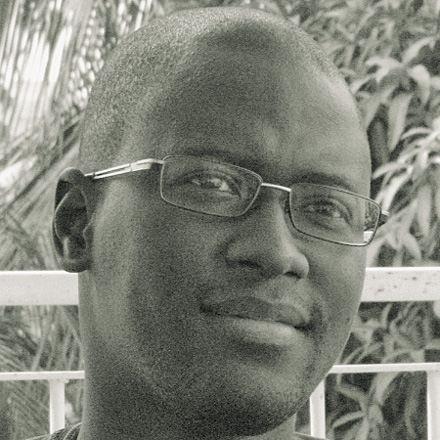Universities
The merits of studying abroad

The experience of studying abroad is not just about academic achievements. Going to a foreign university offers considerable opportunities:
- to better understand one’s way of being,
- question one’s own solid beliefs,
- discover so far unknown social realities,
- explore new perspectives, and
- make new choices.
Students from Asia and Africa find Germany quite exciting. On the one hand, they benefit from new technologies, better laboratory equipment, up-to-date curricula and broad professional networks. On the other hand, they experience an open-minded culture that typically not only appreciates independent, critical thinking, but permits people to question whatever may seem an immutable reality. Pluralism, religious tolerance and individual liberty are taken for granted. New options arise for personal choices, including the career path. Of course, that applies to every student leaving the hometown to study elsewhere, but the impact is stronger when someone from Africa or Asia goes to Europe.
Moreover, Germany serves as a hub interlinking international students from different regions. To a large extent, these multicultural networks remain active after graduation, when many alumni return home, others stay in Germany and yet others move on to other places.
Either way, the persons concerned will have a developmental impact on their nations. Obviously, the home countries need human resources, leaders and agents of change. Those who have foreign experience and foreign training are well-placed to assume such roles. What they have learned in pursuit of their degree is useful, but so is their understanding of German cultural attitudes. But even if they stay in Germany, they will stay in touch with families and friends at home. They share insights; they inspire others. That is equally true of those who use a German university as a steppingstone to get to another, often Anglophone country.
I work at the University of Applied Sciences in Cologne (TH Köln) as the coordinator of the international master programme “Integrated Water Resources Management”. It has a specific focus on the Middle East and North Africa, where water supply is always been a huge challenge, with things getting ever more difficult because of the climate crisis. Our students have prior degrees in various subjects, and our approach emphasises interdisciplinarity and multiculturality. The participants develop their professional skills further and deepen their understanding of the issues in interaction with classmates, and it is fascinating to observe how they increasingly open up to different perspectives. After graduation, they typically assume roles of responsibility. Most do so in their home country, sometimes on behalf of a German development agency, and some stay here, perhaps in pursuit of a PhD or employed by a German company.
In any case, Germany benefits too. The foreign students inspire their German counterparts. They contribute to multiculturality and can promote the integration of immigrant communities. Teaching and hosting students from developing countries is a long-term investment which is especially important in an era when ever more issues require international and indeed global cooperation. Germany needs people in foreign countries who understand Germany, and it needs people in Germany who understand foreign countries. People who graduate from a foreign university are well-placed to build bridges between the two countries they are intimately familiar with.
Germany is grasping those opportunities to a large extent, but there is still some room for improvement. If the country was more generous granting work permits and residence permits, including for family members, life would become easier for members of the diaspora. Moreover, the working environment sometimes proves difficult for immigrants. The more open the host country is, the more effective migrants can serve as ambassadors between two different cultures.
Sudeh Dehnavi is the founder of ENRoot GmbH, a knowledge transfer start-up, and a programme coordinator at the Institute for Technology and Resources Management in the Tropics and Subtropics of the University of Applied Sciences Cologne (TH Köln).
sudeh.dehnavi@th-koeln.de










